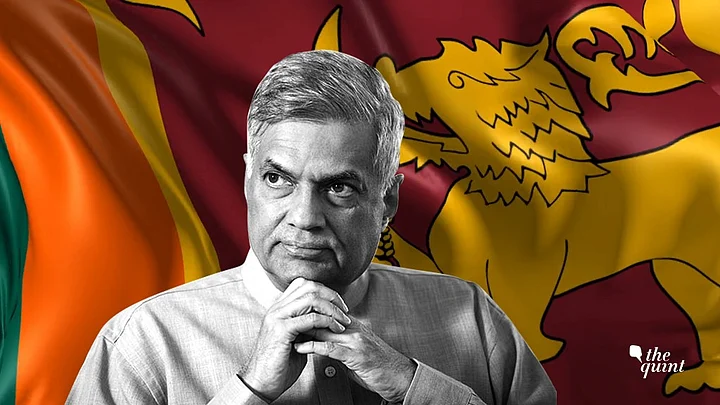Ranil Wickremesinghe, the 73-year-old leader of the United National Party, has been sworn in as the newpPrime minister of Sri Lanka, as the country is undergoing serious economic turmoil and financial instability. Taking charge as the 26th prime minister of Sri Lanka, Wickremesinghe is now tasked with the huge responsibility of ending the country's debt traps and also ensure ending of violence to gain political equilibrium.
After taking oath and attending a religious ceremony in Colombo, the newly designated prime minister said, "I want a closer relationship with India, and I want to thank Prime Minister (Narendra) Modi."
The Sri Lankan prime minister was referring to the Indian economic assistance to the island nation after it hit a giant economic crisis. He also thanked Indian Prime Minister Narendra Modi and expressed his wish to have stronger bilateral ties between the two nations, reported news agency PTI.
India's Aid for Sri Lanka
Since January 2022, the Government of India has assisted Sri Lanka with over $3 billion in form of either loans or credit swaps. Taking its 'Neighbourhood First Policy' seriously, India has agreed to further cement the relationship with Sri Lanka by recognising the newly formed government.
In the last three months, India has given Sri Lanka over 270,000 metric tonnes of diesel and petrol. This is in addition to the delivery of 100 tonnes of nano nitrogen liquid fertilisers, 11,000 MT of rice in January and 40,000 tonnes of rice, vegetables, and daily ration items to Colombo in March. The Reserve Bank of India has also extended a currency swap of $400 million to help Central Bank of Sri Lanka under the Asian Clearance Union.
Wickremesinghe took over as the prime minister of Sri Lanka after the nation was without a government in place since 9 May. Several cities across the country witnessed widespread violence and protest against the political Gotabaya family, which resulted in Prime Minister Mahinda Rajapaksa's resignation. The anti-Gotabaya protests and the violence against Rajapaksa's loyalists left nine people dead and over 200 injured in Sri Lanka.
Addressing the nation, the new Lankan prime minister called for peace and assured to set the economic situation right in the country. "I want to settle this problem to ensure the supply of petrol, diesel, and electricity to the people is uninterrupted. I will certainly do the job that I have undertaken to do," added PM Ranil Wickremesinghe.
Economic Emergency in Sri Lanka
Sri Lanka is facing its worst economic emergency ever since independence from the British Empire in 1948. Experts have suggested that the economic depression is being caused by lack of foreign currency, which has meant that the country cannot afford to pay for imports, which further has led to acute shortages and very high inflation. Taking charge as the prime minister in this grave situation, Ranil Wickremesinghe said that he would allow the people to continue demonstrations near President Gotabaya Rajapaksa's secretariat. However, he expressed his wish to talk with the protesters.
"If I can undertake the job to handle the economic crisis, then I will handle that (protests) too," he added, according to PTI.
Prime Minister Wickremesinghe is currently heading the interim government, in which all political parties in Sri Lanka are stakeholders for a limited period of time. Before going ahead for another parliamentary election, several members of the ruling Sri Lanka Podujana Peramuna (SLPP) founded by Mahinda Rajapaksa, members of the Sajith Premadasa's Samagi Jana Balawegaya and other smaller parties have extended their support for Ranil Wickremesinghe in the Parliament. However, in the 225-member Parliament, the prime minister has only one seat.
The economic crisis in Sri Lanka has pushed citizens to hit the streets and protest against the ruling dispensation. Thousands of people, calling for political change and demanding the resignation of President Gotabaya Rajapaksa are protesting in Colombo.
As a response to this, President Rajapaksa had imposed emergency across the country on 11 April for a period of five days. The government reimposed emergency once again on 6 May, after protests went violent in front of the parliament. The month-long ongoing protest across Sri Lanka also forced President Gotabaya's brother Mahinda Rajapaksa to resign as the prime minister.
(With inputs from PTI.)
(At The Quint, we question everything. Play an active role in shaping our journalism by becoming a member today.)
